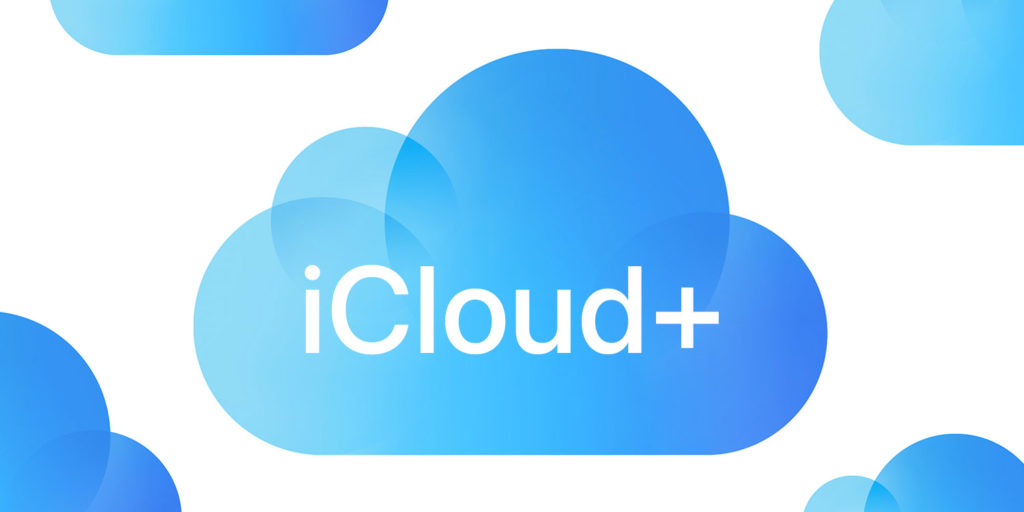Apple is upgrading iCloud with new privacy features. We explore what this means for you
Apple’s at it again, welding a plus sign to a service. This time, it’s iCloud’s turn. The paid tiers of iCloud are to be collectively rebranded iCloud+. They will each retain their existing price points and capabilities, but include key new features. This being Apple, said features are primarily about privacy.
This explainer explores the two main new features, why they matter, commonplace misconceptions about them, and whether Apple’s plans for iCloud+ go far enough. Also, note that Apple One users, being paid iCloud subscribers, are along for the ride when these updates appear this fall.
iCloud Private Relay
We all use various networks to browse the internet, from home Wi-Fi to cellular connectivity when out and about. Behind the scenes, networks and websites can fashion your browsing history into detailed profiles, often used to sell you things by way of targeted advertising.
Apple’s iCloud Private Relay is a system that obfuscates your internet browsing by way of encryption and passing traffic through two relays. These layers of geeky technology make it impossible for any single entity to identify who you are and the sites you visit – and that includes Apple.
In the iOS 15 beta, turning this technology on requires the flick of a switch, and Apple says you’ll be able to disable iCloud Private Relay in a per-site basis, in the event a specific website or service has issues with it. Apple is also inviting developers to support the system, suggesting it won’t be limited purely to Safari.
Don’t call it a VPN
Much of the confusion around iCloud Private Relay stems from outlets erroneously describing it as a VPN – even arguing that if you use the system, you’d be able to ditch VPNs entirely. While there is crossover between Apple’s system and VPNs (which you can read more about in our VPN explainer), they’re not the same thing.
First, VPNs demand you trust a single centralized entity with all of your internet traffic. With iCloud Private Relay, we’ve noted this is not the case, since two relays are involved. Secondly, VPNs are often used to spoof locations, to access geo-locked content. Apple’s system cannot do that. Thirdly, iCloud Private Relay is initially pitched as a solution when browsing using Safari, whereas a VPN anonymizes all your internet traffic.
Depending on your specific needs, it’s possible iCloud Private Relay might be able to replace a VPN, but these two things are distinct in terms of capabilities and objectives.
Hide My Email
The second major privacy feature within iCloud+ is Hide My Email. It’s in some ways similar to Sign in With Apple ID, which optionally obfuscates email addresses when you sign up to a service. But in this case, you can manually generate email addresses for services and websites that don’t support Apple’s sign-in service – or for any other reason.
Hide My Email is built into Mail and Safari, and any new addresses you create will forward to your inbox. You can set up as many as you like, labeling them for specific contexts, and deleting them should they become a magnet for spam. The idea is that your real email address will then be a smaller target due to being less public – although the sad reality is countless millions of addresses are already readily available online due to a number of high-profile security breaches.
Still, Hide My Email’s flexibility and easy address management – along with it helping to not make a bad problem worse – adds up to a compelling prospect.
Privacy – at a price
Assuming they work well – and there’s no reason to suggest they won’t – iCloud Private Relay and Hide My Email are two privacy features that have the potential to meaningfully improve your internet usage experience on Apple devices. But there’s a catch: as noted earlier, they are part of Apple’s paid iCloud tier. In fact, there’s another catch, because Apple has announced that iCloud Private Relay will not be coming to Belarus, China, Colombia, Egypt, Kazakhstan, the Philippines, Saudi Arabia, South Africa, Turkmenistan, and Uganda.
Naturally, there’s a difference between what’s ideal and the realities of our world when it comes to economics and politics. But during WWDC 2021, Apple executive Craig Federighi talked about Apple’s long-standing stance on privacy: “At Apple, we believe privacy is a fundamental human right. We don’t think you should have to make a trade-off between great features and privacy. We believe you deserve both.” As of this fall, that right will in part cost you at least a buck a month – assuming your country has access to the iCloud+ privacy features at all.

